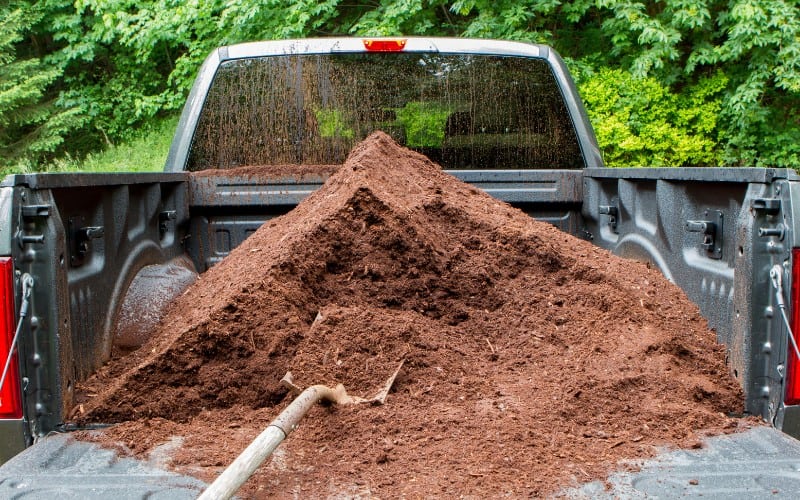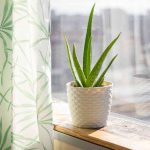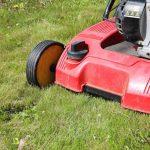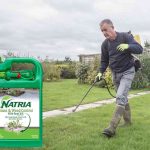We independently research and recommend the best products here. This article contains affiliate links. If you make a purchase after clicking on a link, we may earn a little commission at no extra cost to you.
Mulching is one of the most important things to do when gardening. It is used to conserve water, control the growth of weeds, and better the soil around your crops. But that is not all to it. Mulching can also improve the outlook of your garden by giving it a tidy and neat appearance.
It can also lessen the time you would spend weeding and watering the garden. During the summer, mulching is particularly essential as it prevents loss of water. During winter, it helps keep the roots of plants secure.
There are many types of mulches, but the EZ straw is the most popular. What makes it so? Is EZ straw the best? Is EZ straw safe for a vegetable garden? First of all, EZ straw is 100% safe for vegetable garden and we're going to tell you why shortly.
Let's get started!
Table of Contents
Is EZ Straw Safe for Vegetable Garden?
Is EZ straw safe for a vegetable garden? Of course, yes! It is one of the best options for mulching your garden. So far, no disadvantage has been recorded when the EZ straw is used correctly.
What is EZ Straw?
EZ straw is one of the best mulchers available. It is a fantastic add-on used for the planting of grass seeds. It consists of a tackifier (a kind of natural powder which is used for hydroseeding. The powder sticks together when it is wet) and wheat straw.
It is biodegradable and is relatively safe for children and pets to play on. Most people love the EZ because it prevents grass seeds from being washed away by water or carried out by the wind. The straw protects the seed from being picked up by birds.
It is light in weight and can increase the rate at which the seeds germinate. It also helps in preventing erosion by keeping the soil compact. The EZ straw is a beauty. It will leave your garden looking like a lush carpet grass for football games.
Advantages of EZ Straw
There are lots of advantages to using the EZ straw. Here are some of them.
- It is relatively easy to apply the EZ straw.
- It does not mess up the garden after use. You can leave the EZ straw after the seed grows, and it would degrade slowly on its own.
- You can store the EZ straw outside. It does not pose any harm to pets or children.
- The straw is almost 100% weed-free.
- It encourages beneficial soil microorganisms to thrive.
- It reduces the need for you to water the garden continuously.
- It serves to protect the root of the plants from extremes of temperature.
When Do You Apply Mulch?
The best time to apply mulches is from mid-spring to late spring. This is because annual weeds are yet to germinate, and herbs are still dormant. You can also use them in autumn when plants are slowly dying off.
Apply them on beds so that the plants can grow up properly without weeds at all. For new plants that are yet to be established, you can mulch at whatever time you choose. The mulches will help them retain enough water.
Types of Mulches
There are many types of mulches. Generally, they can be classified into two. Biodegradable mulches and the ones that are not biodegradable. The many kinds of mulches available fall under any of these two broad classes.
Straw
This is the most popular type of mulch. This is where the EZ mulch falls under. They look stunningly beautiful when placed in a garden and do not break down quite quickly.
This is the best mulch to use in a vegetable garden. An advantage of the straw mulch is that they make sure the mud does not come in contact with your edibles.
Compost
This is just like the soil, albeit a bit darker, so it fits the garden properly and improves the soil's structure. It is also cheap as you can make your compost with refuse and waste.
Shredded Bark
This is another cheap and standard mulch. It is usually gotten from cedar trees. It degrades slowly and is the best choice for slopes. Due to the fact that they are by-products of other industries, shredded bark is thought to be environmental-friendly.
As they decay, they tend to sap nitrogen off the soil. If you are using them, you have to add fertilizers to your ground to keep the plants in good health. There are other types of mulches available.
Conclusion
Is EZ straw safe for a vegetable garden? If you've been wondering about this, wonder no more as it is relatively safe. But care has to be taken, so they do not come in contact with specimen shrubs.
When they do, they tend to make the stem soften, which would make the branch vulnerable to infectious diseases.





